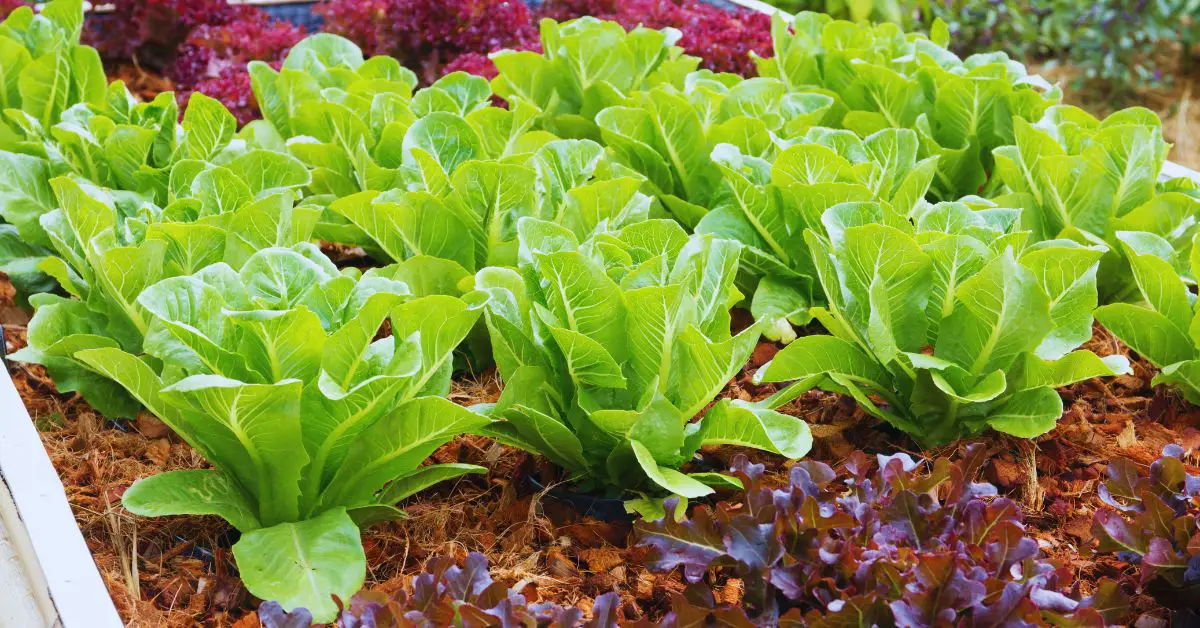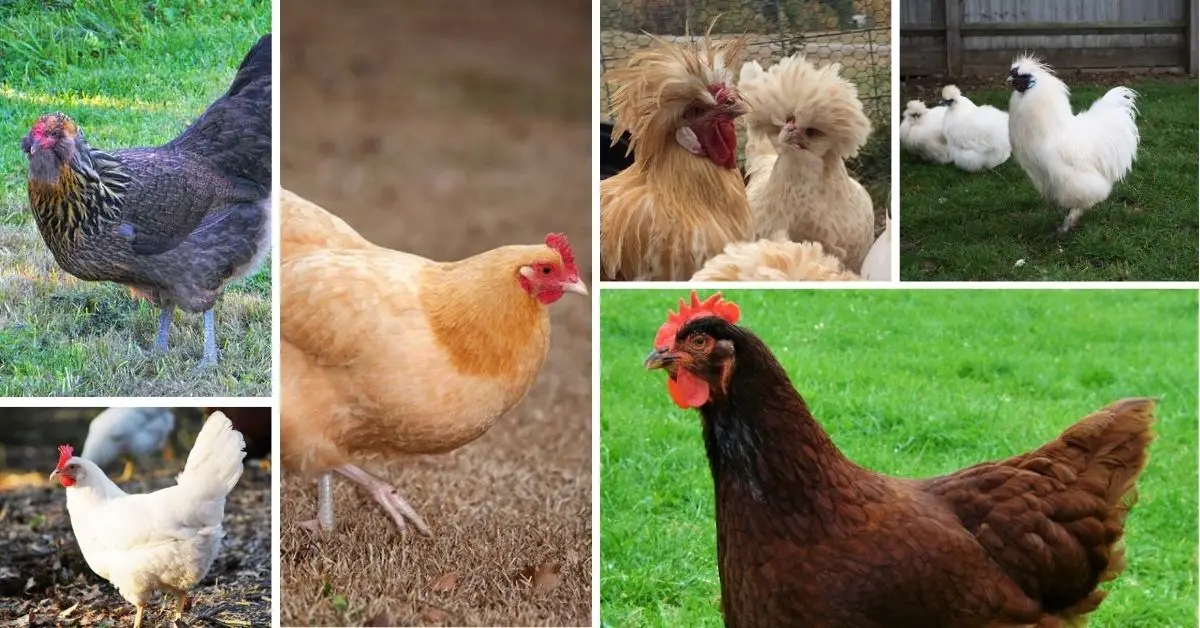Can Petunias Survive Frost?
Can Petunias survive frost? No, petunias cannot survive frost. They are annual plants that typically bloom during the spring and summer months, and they will die off when winter arrives. However, if you live in an area where there is no frost or below-freezing temperatures, then your petunias should be fine.
If you’re like me, you love to add a splash of color to your garden with some beautiful petunias. But what do you do when the temperatures start to drop and frost is in the forecast? Can petunias survive frost? Let’s find out!
How Tolerant Are Petunias to Cold Weather?
Frost and petunias are not a good mix. When temperatures dip below freezing, the water inside the petunia cells expands and bursts, causing the plant to wilt and die. However, there are some things you can do to help your petunias survive a light frost.
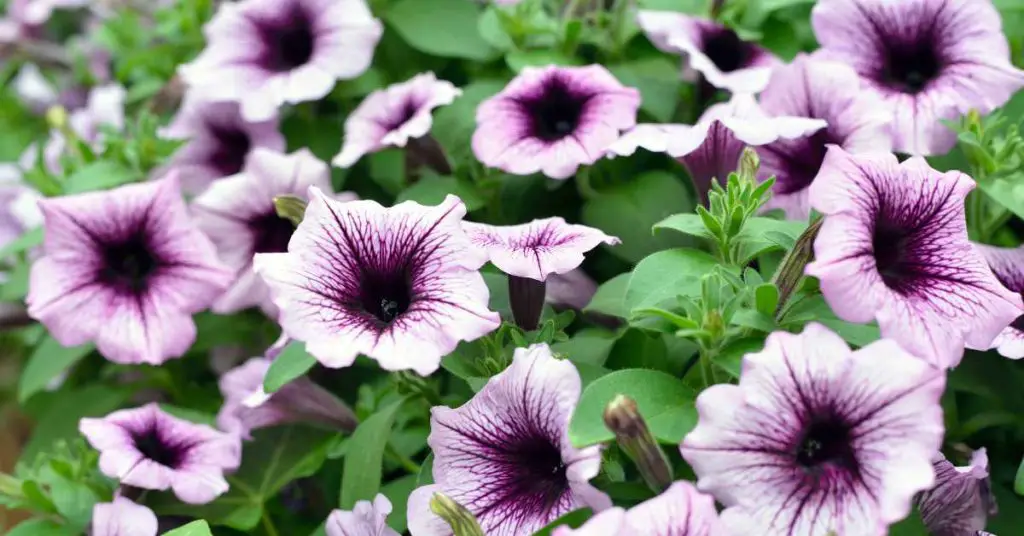
How to Protect Your Petunias from Frost
When it comes to protecting Petunias from frost it comes down to a few things you can do to keep them growing.
Mulching
One of the best ways to protect your petunias from frost damage is to use mulch. Mulch is a layer of material (such as straw, bark, or leaves) that you spread around your plants. It helps insulate plant roots and prevent them from freezing. It also protects plant stems and leaves from being damaged by cold temperatures.
When using mulch to protect your petunias from frost damage, be sure to apply it around the base of the plant to a depth of at least 2-3 inches.
This will help ensure that your petunias are protected from both cold temperatures and reduce the amount of damage to the plant.
You will still experience some damage to the leaves and any blooms that are already on the plant as the leaves are made of cells that are filled with water. When the temperature drops, the cells freeze and ultimately damages the leaves.
Proper Watering
Proper watering can also help prevent your petunias from freezing. It is important to water the plants deeply, allowing them to soak up as much moisture and nutrients as possible before the cold temperatures set in.
This can help protect and insulate the root system from freezing damage. Additionally, it can also help to reduce any water loss due to evaporation.
When the temperature starts to drop, it is also important to make sure that the petunias are not overwatered.
Too much water can cause the roots of the petunias to become soggy and can potentially lead to frost damage or even death of the plant.
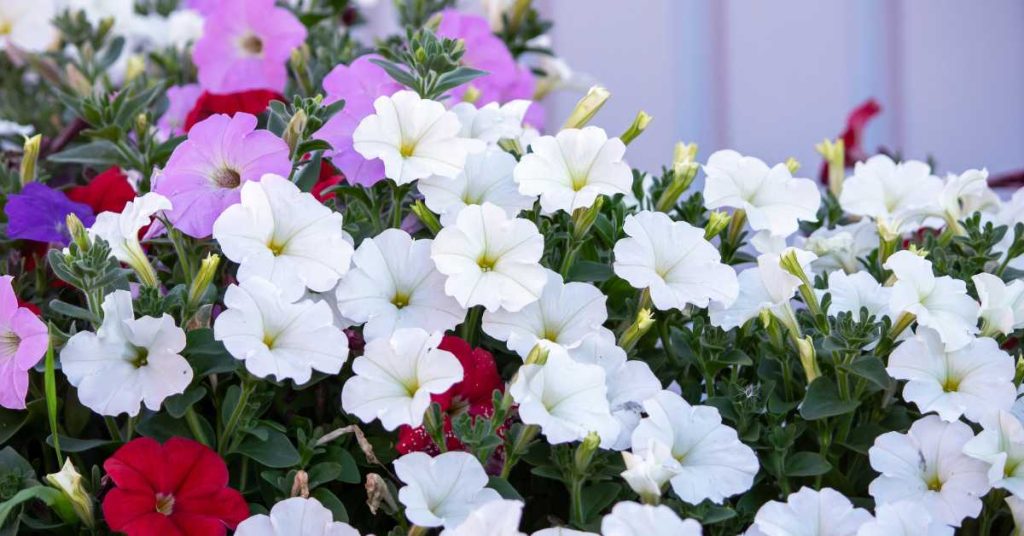
Ensure a Proper Drained Bed
Just as important as proper watering, you should also have your petunias planted in a well-draining raised bed or container. This will help ensure that the roots can absorb enough water and nutrients while also providing adequate drainage.
Poorly drained beds can cause excess moisture to stay around the roots, potentially leading to frost damage or even death of the plant.
Growing Petunias in Pots
If you live in an area where frost is expected, another option is to grow your petunias in pots and bring them inside during cold days or nights. This can help protect the plant from freezing temperatures and can make it easier to control the water and moisture levels of the soil.
Growing petunias in pots can be a great way to protect them from frost. The insulation of the pot can help keep the roots protected and can also shield the stems and leaves from damage.
When filling your pots with soil, use a high-quality potting mix that drains well as this will help ensure that your petunias will have the proper drainage they need while also providing enough moisture and nutrients for growth.
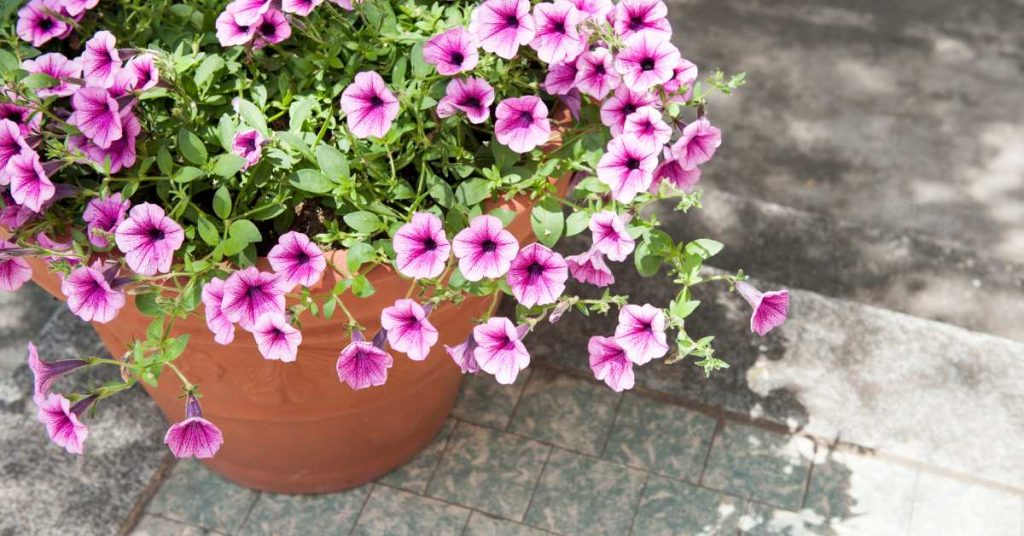
Covering Your Petunias
One option is to cover your plants overnight. This will help protect them from the cold air and prevent them from getting too cold. There are several options for a frost protection cover that you can use.
You can use a sheet, tarp, or actual frost cloth.
All of these make a great choice and can protect them during cold snaps. The idea of covering your plants is that it isn’t actually the temperature that will kill most plants but rather the frost that gets on the foliage.
If you can prevent frost from getting on the foilage you can avoid most problems unless the temperatures are below freezing for multiple days.
This is called a hard freeze. In this case, it is best to bring those sensitive plants inside during those extreme situations.
Will Petunias Come Back After Frost?
Petunias are highly sensitive to frost and can be easily killed due to cold temperatures. When temperatures drop below freezing, it can cause the cells in a petunia’s leaves to freeze and ultimately damage or kill the plant. It can also cause the roots to become soggy and can lead to frost damage or even the death of the petunia.
Once a petunia has been exposed to frost, it can be very difficult for the plant to come back, and even if it does survive the cold temperatures, it can suffer from stunted growth or other damage. It is important to take measures to protect your petunias before the frost sets in.
Can Petunias Survive a Hard Freeze?
Many gardeners love the beauty of the petunia flower, but unfortunately, no matter how hardy a plant they may be, no petunia that I have ever seen can survive a hard freeze.
A hard freeze is normally defined as a period of time where temperatures have been below 28 degrees Fahrenheit (-2 degrees Celsius) for at least 4 hours.
While certain other flowers such as snapdragons and dianthus can survive the cold, petunias need to be protected from frost or otherwise taken indoors when temperatures drop.
FAQs
Here are some common questions about Petunias and frost:
What Type of Environment Can Petunias Thrive In?
Petunias can thrive in a variety of environments, from partial shade to full sun. They can tolerate both warm and cold climates, but like any other plant, they can suffer from frost damage when exposed to freezing temperatures for too long.
Most petunia varieties prefer slightly acidic soils that are well-drained with plenty of organic matter added.
In Conclusion
Frost and petunias are not a good mix. When temperatures dip below freezing, the water inside the petunia cells expands and bursts, causing the plant to wilt and die.
However, there are some things you can do to help your petunias survive a light frost. If you live in an area where frosts are common, it’s best to plant your petunias in the spring after the last frost has passed.
This will give them the best chance to thrive and bloom all summer long.


